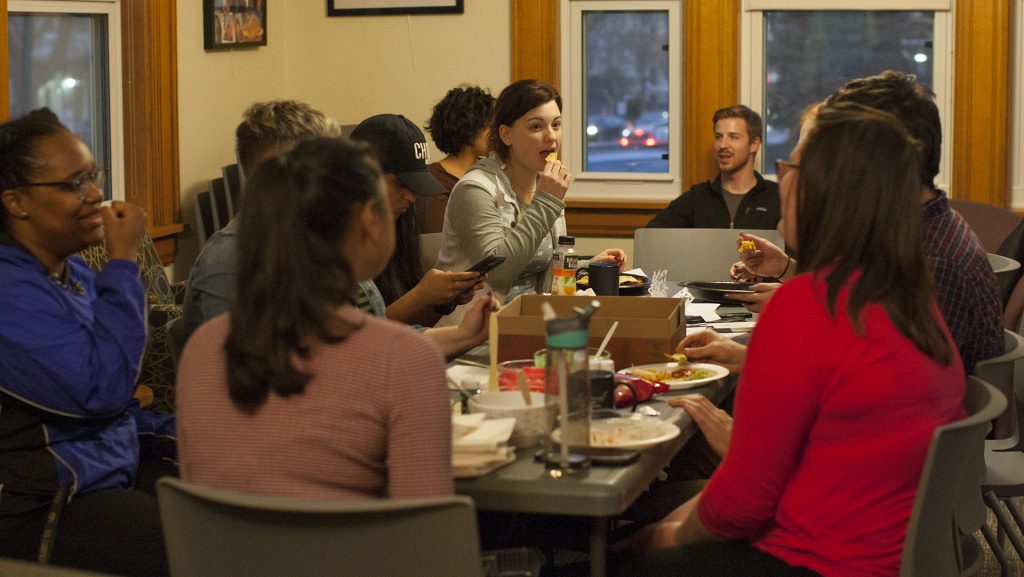Research suggests sexual-violence-prevention education is most effective when students are the ones conveying that message to their peers — and that’s exactly what the campus community is doing with the Women’s Resource & Action Center’s Certified Peer Educators Program.
The program started at the University of Iowa in January, The Daily Iowan previously reported, after the idea of a peer-led program to educate students about sexual violence came out of discussions with other institutions.
“We really wanted to make sure that as we were moving forward and expanding violence-prevention education on campus that we were doing so in a way that was going to be as impactful as possible,” said Martha Pierce, WRAC assistant director and violence-prevention program coordinator.
RELATED: Students want action on sexual misconduct
There are currently nine peer educators, though the goal is to get one more trained. The peer educators work with athletes, students involved in greek life, underrepresented students, and other groups that have typically not had much contact with the violence-prevention team.
According to data the UI collected in the spring 2017 semester, there were 34 workshops co-facilitated by one professional staff member and one peer educator, and 931 students participated. Pierce said educators discuss dismantling rape culture, bystander intervention, and more through workshops with a variation of five sets of curriculum.
UI student Ellen Kuehnle, who has been a Certified Peer Educator since January, said the program focuses on the actions of perpetrators and addresses problematic behavior.
“I think it’s really helpful to have someone who’s in the same situation and also learning about this stuff to be helping teaching because it shows you can become an expert on it,” Kuehnle said. “… We’ve grown and learned and are now able to effect change, or create change.”
RELATED: UI conducting second survey on sexual misconduct
Part of the training that the peer educators offer provides students with different intervention methods, with some tactics being more direct than others. For example, people can directly confront the perpetrator or opt for a more indirect method, such as placing an anonymous police call.
Students are less likely to intervene if the person is a stranger. UI data showed students reported there is a 67 percent likelihood they would intervene when a stranger is involved, whereas they reported a 96 percent likelihood of intervening when a friend was involved.
For that reason, Kuehnle said, bystander-intervention tactics are a component of the education the WRAC program offers.
“When one person steps forward, other people are more likely to,” Kuehnle said.
Margaret Mitchell, who has also been a peer educator since January, said sexual violence on campus is a major issue and needs to be addressed more by the community as a whole.
“Overall, I think that with programs like this emerging throughout the nation that people are becoming more comfortable talking about it and being upfront and honest,” she said.
RELATED: Sister vigil for sexual assault victims held at UI
The future of efforts to address sexual violence on college campuses face uncertainty nationally and in the state. U.S. Secretary of Education Betsy DeVos rescinded the President-Obama era Dear Colleague letter containing guidelines for campuses to respond to sexual assault in September. Additionally, the state Legislature reduced funds to victim services earlier this year.
At the UI and nationally, however, Pierce said there seems to be a cultural moment in which people are becoming more informed about sexual violence.



